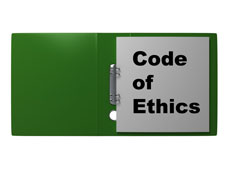Most coaches would prefer to see self-regulation rather than government intervention to tackle fears that burgeoning numbers of unqualified people entering the profession could damage its reputation.
Although the coalition government has no current plans to regulate the industry, training body, the Coaching Academy, has taken a first step in this direction by sponsoring The National Occupation Standards in Coaching and Mentoring framework for future NVQs to provide a benchmark for employers to judge quality.
But according to a survey undertaken by industry magazine Coaching at Work, respondents would like to see the industry do more. Some 84% of the 529 coaches questioned said they want to see professional bodies develop a cross-industry code of ethics, while 76% would welcome the introduction of common complaints procedures. About 56% also said they would also advocate the creation of a coaching register.
Moreover, a huge four out of five respondents agreed that customers should be encouraged to employ only those coaches who belonged to a professional association and subscribed to a code of ethics.
Some 73% also supported the idea of collaboration between existing industry bodies to educate both the purchasers of coaching services and the general public as to what constituted excellent, good and poor coaching practice. The figure fell to only 47% of respondents who believed that the matter should be handled by a single body alone, however.
Coaching at Work’s editor Liz Hall told People Management: "We have seen more and more collaboration between the bodies. But the message is clear – coaches want to see even more collaboration, particularly in key areas such as developing a joint code of ethics and complaints procedure."
The most frowned-upon behaviour by peers was sexual intimacy with clients and misrepresentation of coaching credentials. This was followed by disapproval of developing inappropriate personal relationships with customers and breaking client confidentiality.
There is currently no mandatory standard training or compulsory code of practice for the coaching profession.
Most coaches would prefer to see self-regulation rather than government intervention to tackle fears that burgeoning numbers of unqualified people entering the profession could damage its reputation.
Although the coalition government has no current plans to regulate the industry, training body, the Coaching Academy, has taken a first step in this direction by sponsoring The National Occupation Standards in Coaching and Mentoring framework for future NVQs to provide a benchmark for employers to judge quality.
But according to a survey undertaken by industry magazine Coaching at Work, respondents would like to see the industry do more. Some 84% of the 529 coaches questioned said they want to see professional bodies develop a cross-industry code of ethics, while 76% would welcome the introduction of common complaints procedures. About 56% also said they would also advocate the creation of a coaching register.
Moreover, a huge four out of five respondents agreed that customers should be encouraged to employ only those coaches who belonged to a professional association and subscribed to a code of ethics.
Some 73% also supported the idea of collaboration between existing industry bodies to educate both the purchasers of coaching services and the general public as to what constituted excellent, good and poor coaching practice. The figure fell to only 47% of respondents who believed that the matter should be handled by a single body alone, however.
Coaching at Work's editor Liz Hall told People Management: "We have seen more and more collaboration between the bodies. But the message is clear – coaches want to see even more collaboration, particularly in key areas such as developing a joint code of ethics and complaints procedure."
The most frowned-upon behaviour by peers was sexual intimacy with clients and misrepresentation of coaching credentials. This was followed by disapproval of developing inappropriate personal relationships with customers and breaking client confidentiality.
There is currently no mandatory standard training or compulsory code of practice for the coaching profession.




